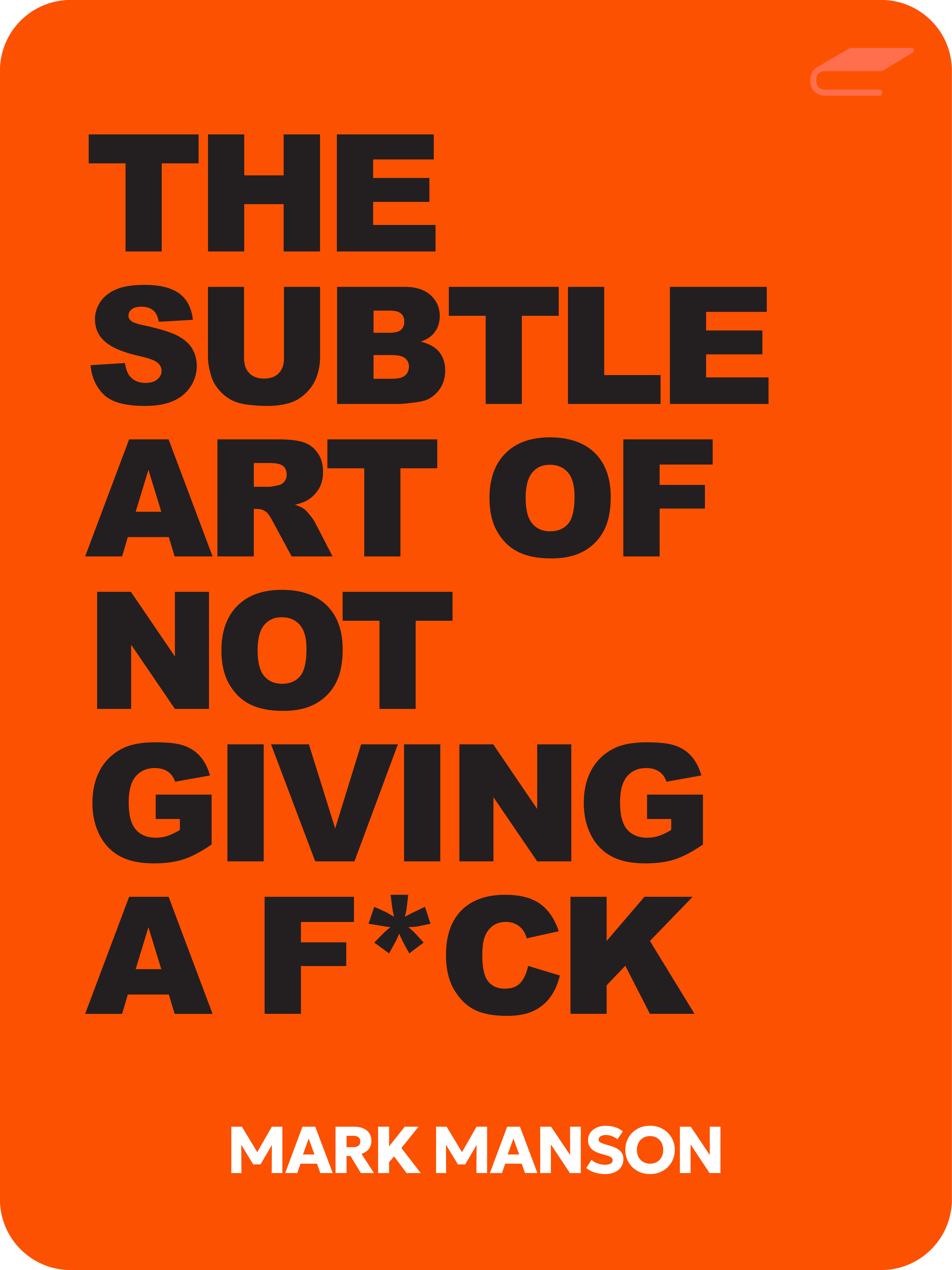
Manson introduces the concept of the "backwards law," which posits that the pursuit of positive experiences is itself a negative experience, while the acceptance of negative experiences can be a positive experience. This counterintuitive idea forms the foundation of his philosophy.
For example, constantly striving for happiness can make us unhappy, as we become acutely aware of our shortcomings and dissatisfactions. Conversely, accepting that life inherently involves suffering can lead to greater contentment. Manson illustrates this with the story of Buddha, who only found enlightenment after abandoning his pursuit of both extreme pleasure and extreme asceticism.
To apply this concept, readers are encouraged to embrace discomfort and challenge. Instead of avoiding difficult conversations or situations, we should lean into them, understanding that growth often comes from struggle. This might mean having that tough talk with a partner or pushing through the initial discomfort of learning a new skill.
Manson argues that true happiness comes not from relentlessly pursuing pleasure, but from solving problems and overcoming challenges. He emphasizes the importance of taking responsibility for our lives, even for circumstances that aren't our fault.
He introduces the "responsibility/fault fallacy," explaining that while we're not always at fault for negative events in our lives, we're always responsible for how we respond to them. Manson uses the example of a hypothetical man who believes his short stature is the reason for his dating failures. While the man isn't at fault for his height, he is responsible for how he lets it affect his life and relationships.
To implement this idea, readers should examine their own lives for areas where they might be avoiding responsibility. Are there situations where you're blaming external factors for your unhappiness? Manson would encourage taking ownership of these challenges and focusing on what you can control – your reactions and choices.
Manson posits that suffering is an inevitable part of life, and that our choice of what to suffer for defines us. He argues that problems never stop; they merely get exchanged or upgraded. Therefore, the key to a good life is not to avoid problems, but to find good problems – challenges that align with our values and bring meaning to our lives.
He illustrates this with the story of Pete Best, the original drummer of The Beatles who was replaced by Ringo Starr just before the band achieved worldwide fame. While this could be seen as a devastating failure, Best eventually found happiness in a life away from the spotlight, valuing family and simple pleasures over fame and fortune.
To apply this concept, readers should reflect on what they're willing to suffer for. What challenges are worth enduring for the sake of your values? This might mean enduring the discomfort of public speaking to advance a cause you believe in, or the struggles of entrepreneurship to create something meaningful.
Manson warns against the perils of entitlement, which he sees as a growing problem in modern society. He argues that feeling entitled to happiness, love, or success without being willing to work for it leads to disappointment and dysfunction.
He emphasizes the importance of healthy personal boundaries, explaining that they are crucial for building trust and respect in relationships. Manson uses the example of a hypothetical couple where one partner takes responsibility for the other's emotions, leading to a toxic dynamic.
To implement healthier boundaries, readers should practice saying "no" to requests that don't align with their values or well-being. It's also important to allow others to experience the natural consequences of their actions rather than always trying to "fix" things for them.
In the final section, Manson tackles the ultimate negative experience: death. He argues that confronting our mortality is essential for living a meaningful life. By accepting the inevitability of death, we can focus on what truly matters to us and let go of trivial concerns.
Manson shares a powerful personal anecdote about sitting on the edge of a cliff in South Africa, forcing himself to confront his mortality. This experience, he explains, helped him gain perspective on his life and values.
To apply this concept, readers don't need to engage in extreme activities. Instead, they can practice memento mori – the ancient practice of reflecting on death. This might involve periodically asking yourself, "If I died tomorrow, what would I regret not doing or saying?" Use these reflections to prioritize what truly matters in your life.
“The desire for more positive experience is itself a negative experience. And, paradoxically, the acceptance of one's negative experience is itself a positive experience.”
This quote encapsulates Manson's central argument about the backwards law, highlighting the counterintuitive nature of happiness and fulfillment.
“Who you are is defined by what you're willing to struggle for.”
Here, Manson emphasizes the importance of choosing our values carefully, as they determine the challenges we're willing to face.
“We suffer for the simple reason that suffering is biologically useful. It is nature's preferred agent for inspiring change.”
This quote challenges the reader to reframe their perspective on suffering, viewing it as a catalyst for growth rather than something to be avoided at all costs.